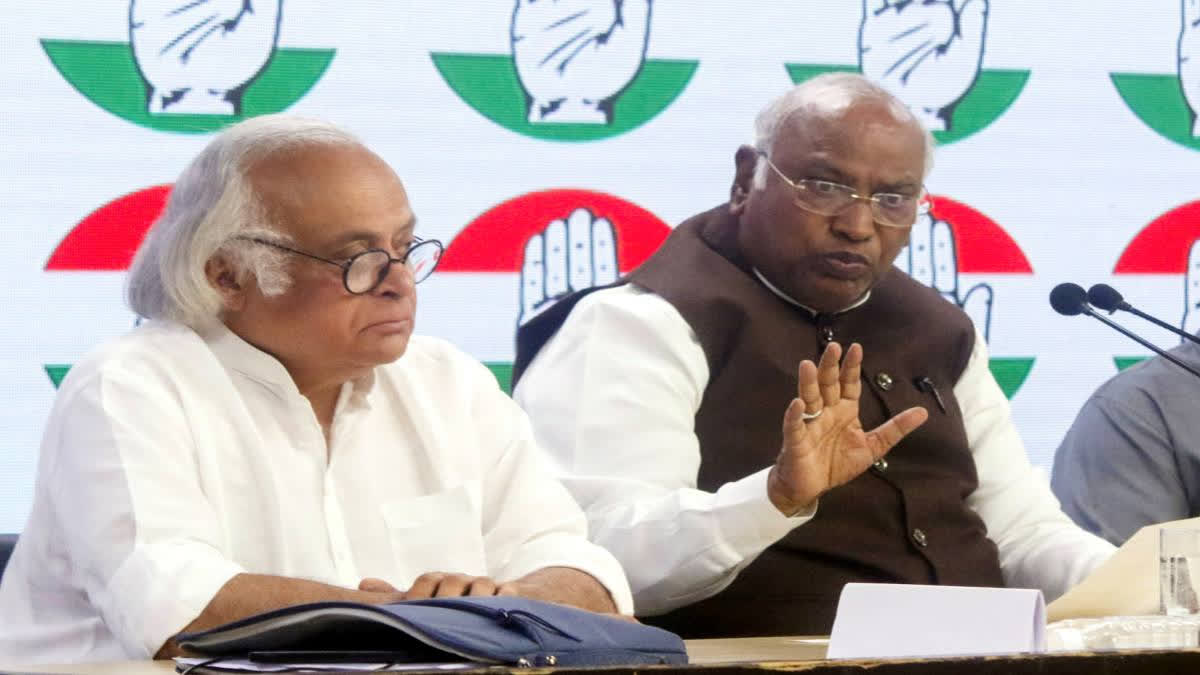New Delhi: The Congress on Sunday asserted that a caste census is the only way to ensure equal opportunity for all in the country.
Congress general secretary Jairam Ramesh said caste has been a socio-economic reality of Indian society for centuries. "We cannot deny caste-based discrimination in India and the disadvantages imposed by caste at birth," he said in a post on X.
"To make the distribution of economic growth more equitable, we need a survey of the ownership of assets and the representation of people in the institutions of our democracy," Ramesh said.
Therefore, what is needed is a caste census combined with a survey of national assets and governance systems, which is updated from time to time, he asserted in the post on X.
"This survey of caste groups, national assets, and representation in governance systems -- collectively called a comprehensive socio-economic caste census -- is the only solution to ensure an India with equal opportunity for all," the Congress leader said using the hashtag "Ginti Karo".
He claimed that the caste category in the Census was done away with, except for those pertaining to Scheduled Castes and Scheduled Tribes, beginning with the 1951 Census.
"This was considered necessary given the challenges faced by a newly independent country. The last such Census due in 2021 has been repeatedly put off by the Modi Government -- so we are currently lacking the latest data even for Scheduled Castes and Scheduled Tribes," Ramesh said on X.
In a post on X, Congress president Mallikarjun Kharge explained the reason behind announcing "Hissedari Nyay" (Participatory Justice) as part of its promises to people ahead of the Lok Sabha polls.
"India's richest 1 per cent enjoy 22.6 per cent of national income, more than during the British Raj, while the poorest 50 per cent get only 15 per cent of national income. This has happened only in the last 10 years of the Modi government," he said.
Kharge claimed that the net worth of billionaires grew by more than 280 per cent between 2014 and 2022, which is 10 times the growth rate of national income during the same period.
On the other hand, about 34 per cent of households in India earn less than the proposed national level minimum wage of Rs 375 per day, he said.
"Therefore, the Congress Party, under 'Hissedari Nyay' (Participatory Justice) guarantees a comprehensive social, economic and caste census. Through this, the population, socio-economic condition of all castes and communities, their share in the national wealth and their representation in the institutions related to governance and administration will be surveyed.
"This affirmative action policy will bring revolutionary change in the country. Hand (Congress' poll symbol) will change the situation," Kharge said in a post in Hindi on X.
Ramesh, in his post on X, said the Socio-Economic Caste Census (SECC) covering 25 crore households was conducted in 2011 and it collected data on caste and socio-economic parameters relating to these households.
The socio-economic data is used now for welfare programs but the caste data never got published by the Narendra Modi Government, he said. "Over the past three decades, reservations in education and employment in the government and the public sector have come to cover not only Scheduled Castes and Scheduled Tribes, but also the Other Backward Classes and Economically Weaker Sections (EWS) of general castes. But we are currently lacking data on the different groups that are covered under these categories, and their respective populations."
Ramesh said the government cannot plan for social justice without such data on the population in each of these categories. "That is why a caste census becomes necessary. It is also essential to ensure more equitable distribution of reservation benefits within the reserved categories," he said.
Going beyond the population of each caste grouping, the real question we hope to answer is who benefits from fast economic development, and who bears its costs. Our experience shows that the benefits of growth in India are inequitably distributed," Ramesh asserted.
The Congress has been seeking a nationwide caste census for some time now to ensure equal opportunities to all as per their population.
Read More



